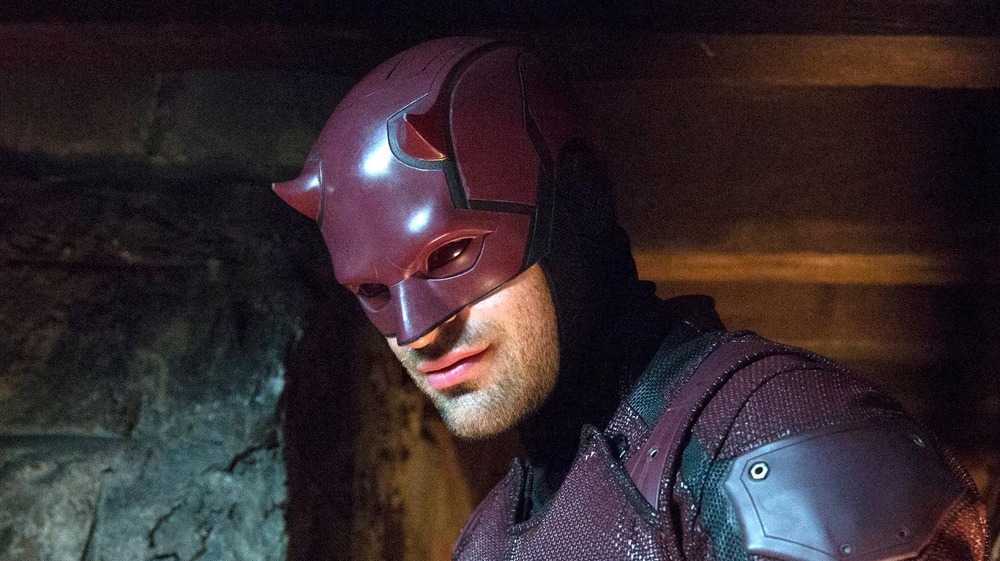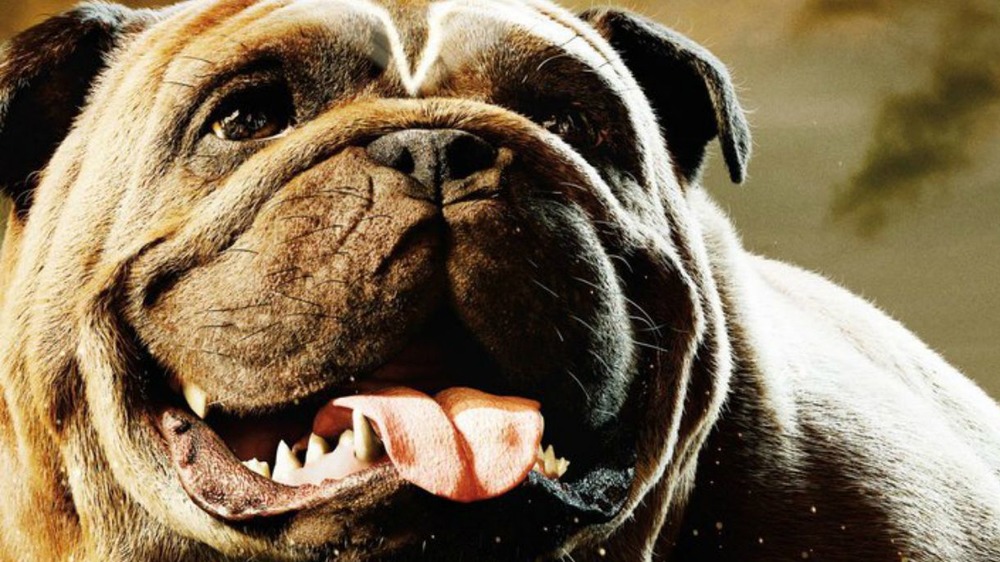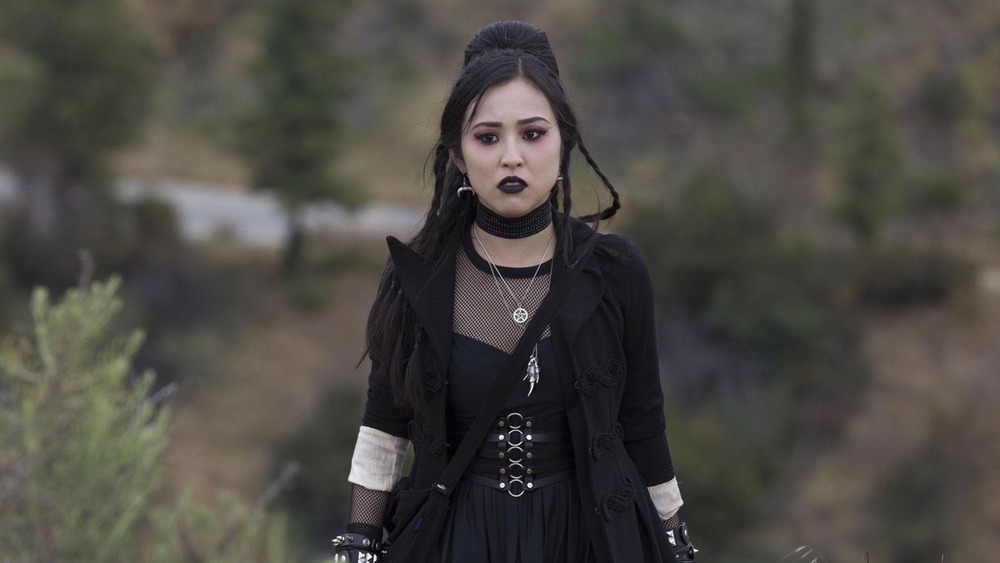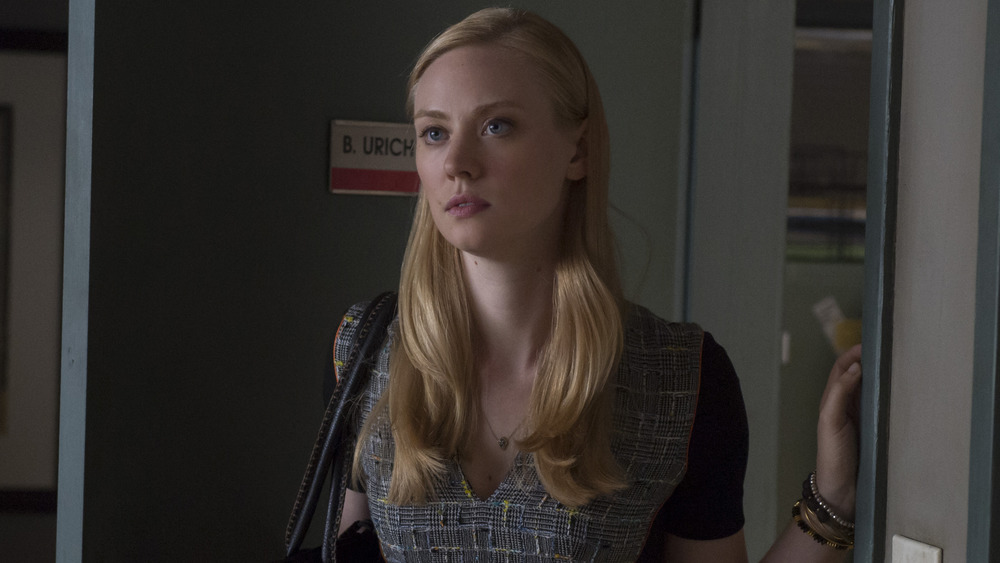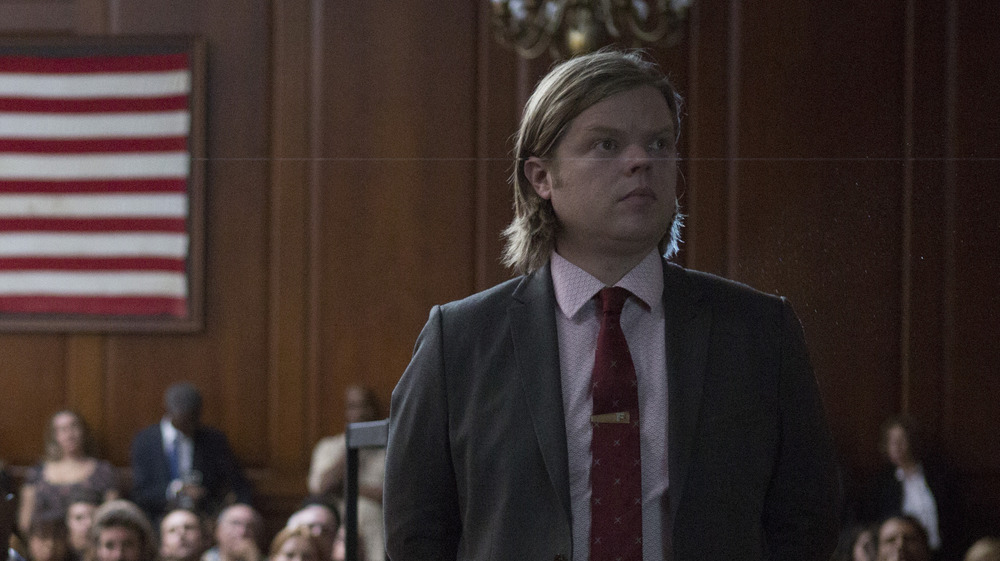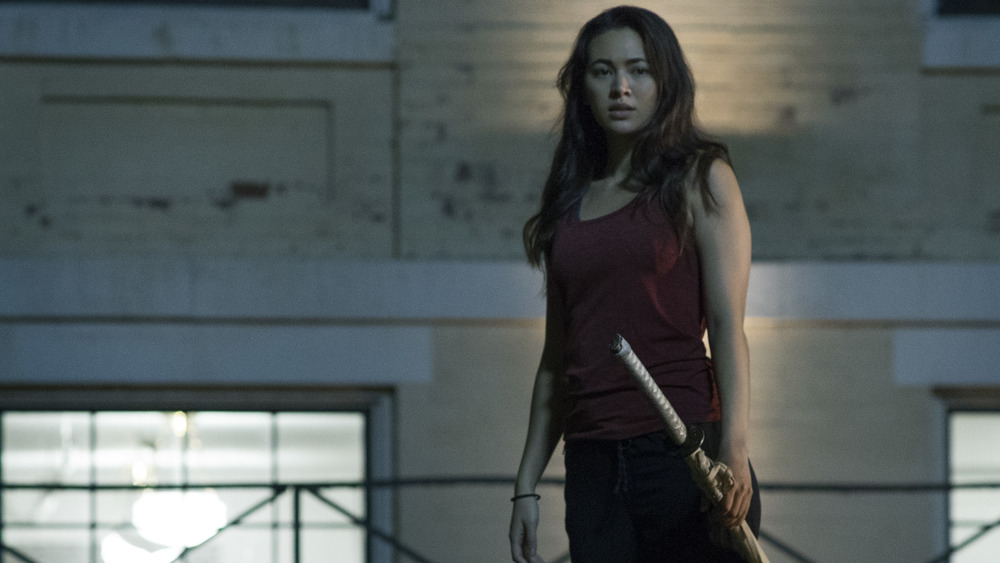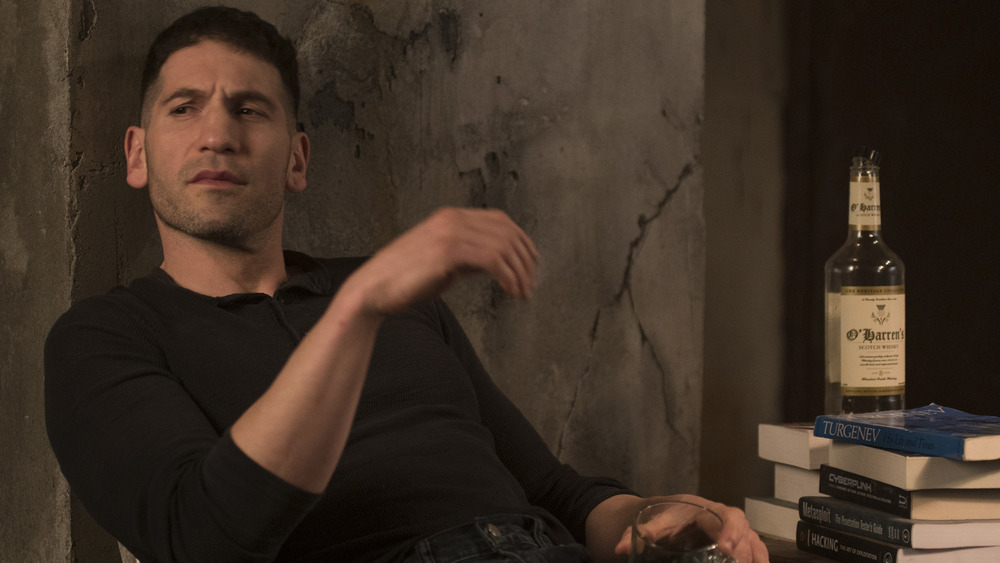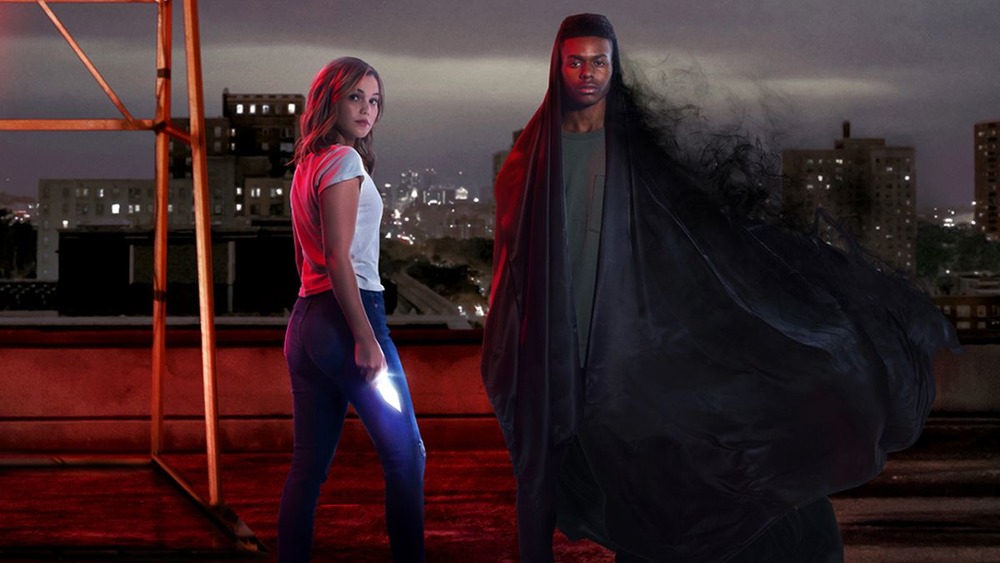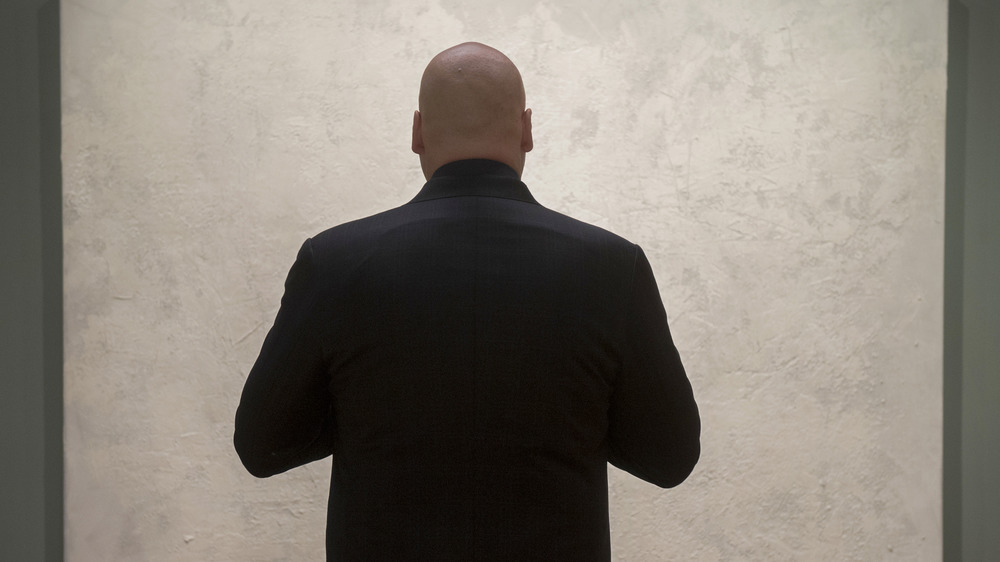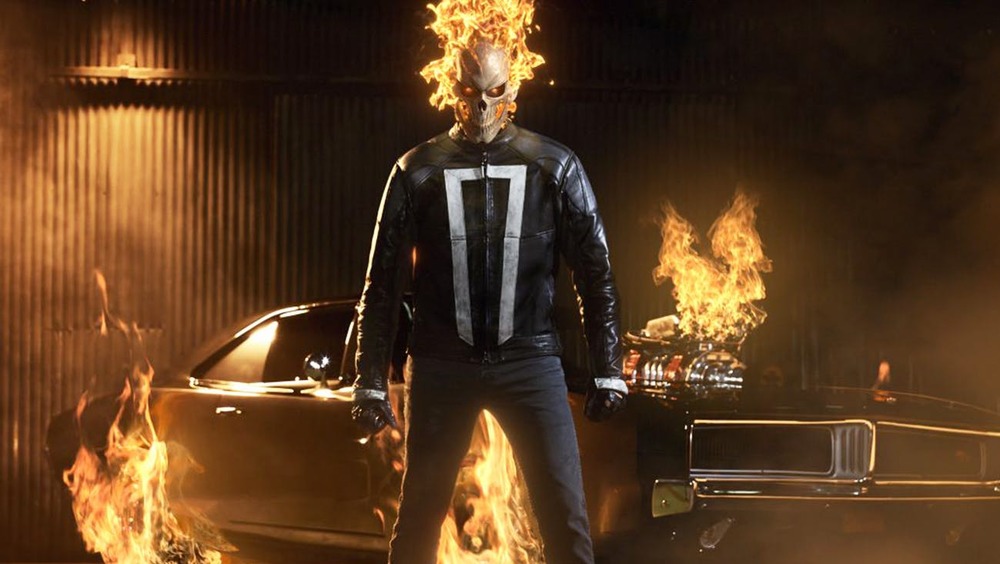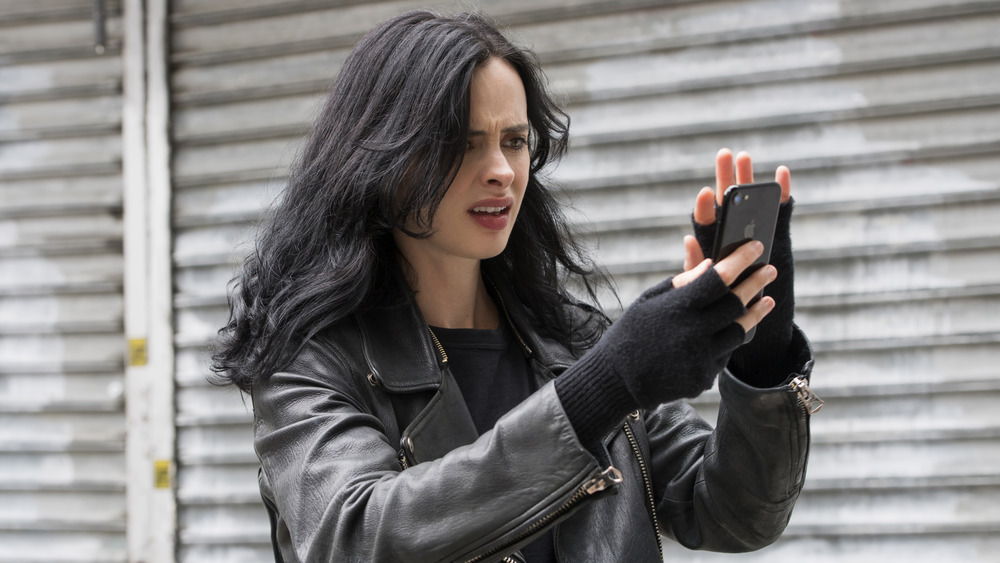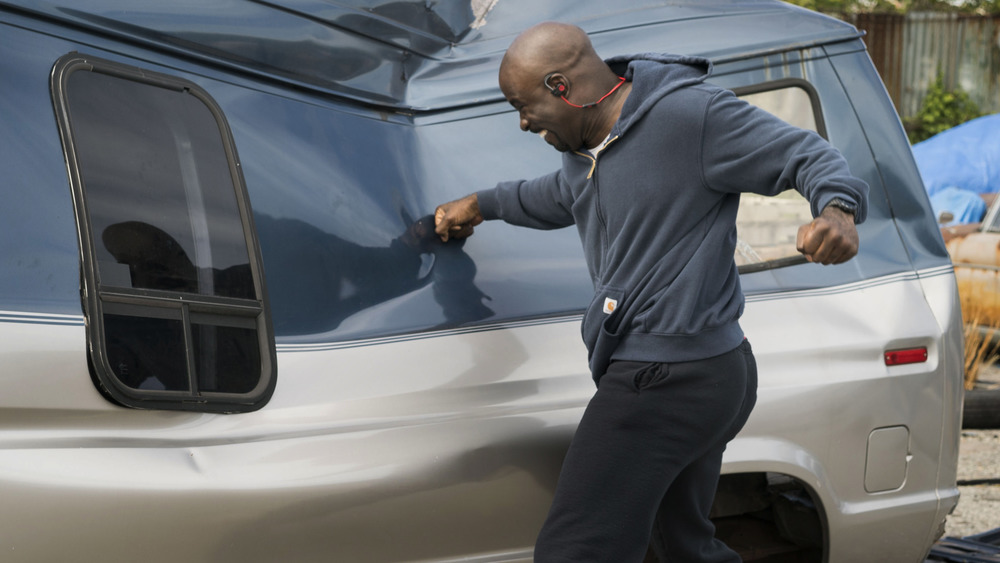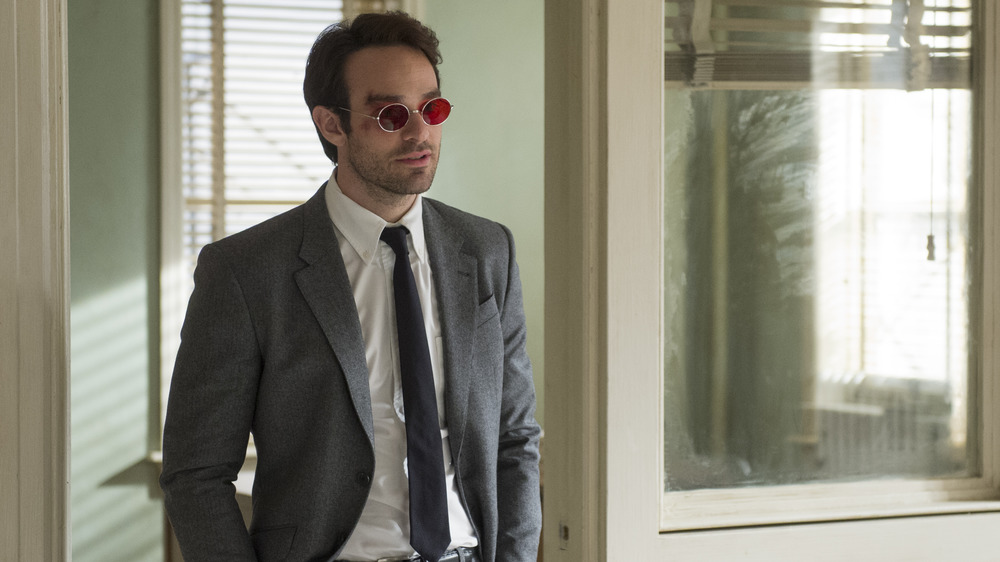Marvel TV Characters We Want In The MCU
At first, Marvel's TV efforts excited fans with the prospect of integration between the MCU and shows like Daredevil. But gradually, references to characters and events from the MCU faded from Marvel's small-screen productions. The global ramifications of Thanos' snap in Avengers: Infinity War go conspicuously unmentioned in anything Marvel-related on Netflix, for example – but that's not surprising. By 2018, the continuity break between Marvel TV and the MCU had been visible for some time.
This reduced connection to the movies watered down the relevancy of Marvel's TV shows. Though Agents of S.H.I.E.L.D. far outlasted all the Marvel Netflix shows at a full seven seasons, by its end, even it was dramatically distanced from the MCU. That went double for the handful of television projects created for Hulu and Freeform like Cloak & Dagger and Runaways, which got caught up in the shuffle of corporate restructuring. Whatever potential they had was lost — but definitely not forgotten.
Not everything about the previous 10 years of Marvel TV works. But would it hurt Marvel to re-absorb some of the stuff that does work? Heck no! These are the Marvel TV characters who belong in the MCU.
Lockjaw
For a time, Marvel Studios was cranking out one hit after another. It was as though the superhero behemoth could do no wrong. Then the reviews for the Inhumans pilot arrived in 2017, and we learned that Marvel could, in fact, fail.
Inhumans fell short of expectations. But that does not change the fact that Lockjaw is a gigantic, telelporting bulldog puppy with a tuning fork on his head who lives on the moon. His presence instantly improves literally any piece of media. His live-action appearance might necessitate too many digital effects for a television budget to comfortably absorb, but a Marvel film would be a different story. Black Panther is pretty great, but y'know what would've made it better? A giant teleporting puppy. Ditto for Thor: Ragnarok. Double ditto for Taxi Driver. Triple ditto for Little Women directed by Greta Gerwig.
For that matter, let's think about how much cash Marvel has left on the table by not capitalizing on Lockjaw's appeal. He's a dog, for cripe's sake. People love dogs. All Marvel has to do is put Lockjaw in a successful movie, print some Lockjaw t-shirts, manufacture some Lockjaw plush dolls, and soon, they'll have an even more unfathomable amount of money. You're welcome, Marvel Executives Who Are Definitely Reading This. We're happy to help.
Nico Minoru
Television superheroes often see their powers watered down by budget limitations. But notwithstanding the remarkably low profile Old Lace keeps, the Runaways get to use their respective abilities more often than a pessimist might expect, on their eponymous Hulu series. But "more than you might expect" doesn't mean "enough" in this instance. As audiences with limited knowledge of the source material might get the frequently glowing, part-Gibborim, blonde Karolina Dean mixed up with the frequently glowing, part-Kree, blonde Captain Marvel, we're focusing on the other most-powerful member of the Runaways squad for future MCU participation: Nico Minoru.
First off, Nico boasts an intriguing set of powers. Though the show science-s them up, they're essentially magic-based: She can perform any spell with the help of her Staff of One, but only once. Moreover, she enters into an intriguing romance with bubbly, warm-hearted Karolina. But above all, the MCU needs Nico Minoru because the MCU has hardly any goths, and that's a serious problem. Just look at DC's slate of live action material — it's got plenty of goths. There's Batman. There's Raven. They're in the process of producing a Sandman streaming series. If the MCU doesn't up its goth game before mainstream TV audiences are introduced to Death of the Endless, then how will goths ever take Marvel seriously again?
Karen Page
Karen Page gets a raw deal in the comics. She first appears as a secretary at the law offices of Nelson and Murdock in 1964, along with the rest of the gang in Daredevil #1, by Stan Lee and Bill Everett. Eventually, she leaves the job and a questionable romance with one of her bosses to pursue an acting career. Some time after failing spectacularly in Hollywood, she sells that same ex-boyfriend out, revealing his secret identity as the masked crimefighter Daredevil in exchange for a hit of smack. A few years later, she is falsely diagnosed with H.I.V., and shortly thereafter, brutally killed by Bullseye.
Had it not been for the much more optimistic Karen Page who emerges on Netflix's Daredevil, all that nasty business would've been her whole story. Like comics Karen Page, TV Karen Page has a traumatic background and a romance with Matt Murdock, but the show tends to place more emphasis on her resourcefulness and keen powers of deduction than her struggles. Granted, if we had to pick one member of the Daredevil crew to transplant to the MCU, it wouldn't be Karen Page. But since the fun, smirk-y chemistry between Deborah Ann Woll as Page, Charlie Cox as Matt Murdock, and Elden Henson as Foggy Nelson is basically what prevents Daredevil from gazing all the way up its own navel, Karen Page warrants a spot on this list.
Foggy Nelson
Just like Jimmy Olsen and Alfred Pennyworth do for their respective superhero associates, Foggy Nelson plays an understated but essential role for Daredevil. Even if he's usually not our point-of-view character, the presence of a benign, unspectacular, relatable everydude goes a long way towards making a completely implausible story feel somewhat plausible.
On Netflix's Daredevil, Foggy's a normal guy who's smarter than he realizes, providing an essential counterweight to Matt Murdock, an utterly exceptional guy who's not as smart as he thinks he is. Running a law office is difficult work, which means Matt Murdock's legal efficaciousness collapses whenever his superhero duties inevitably take priority. That means that without Foggy Nelson — who has the professional advantage of not having a double life as a crimefighter — the law offices of Nelson and Murdock would flop, and Matt Murdock wouldn't be able to make a living. So if we want Daredevil around, then we have to accept Foggy Nelson as part of the package deal.
Perhaps more importantly, if Foggy Nelson didn't exist, the casting director of the 2003 Daredevil movie wouldn't have hired Jon Favreau to play him, which means Favreau might've never met Kevin Feige, and thus never gone on to direct Iron Man. Had that happened, the entire MCU as we know it could be totally different — or could've just never happened. The MCU owes Foggy Nelson, dagnabbit.
Colleen Wing
Since Iron Fist petered out in 2018, Jessica Henwick has moved onto The Matrix, a considerably more successful action franchise. This should come as a shock to no one who's seen her in action as Colleen Wing. Her fight scenes are the only aspect of Iron Fist we remember, without resorting to Google or Wikipedia: Henwick is extraordinarily good at pretending to kick people in the face. Many critics might argue that not everyone who worked on Iron Fist necessarily did as well with their designated tasks — but hey, that just makes her shine brighter.
With The Matrix on her plate, we're assuming Henwick doesn't need to revive Colleen Wing unless Disney offers her something more substantial than another go 'round as second banana to the least popular member of the Defenders. So we're not necessarily saying Wing should come back to the MCU — we're just saying it wouldn't be the worst thing in the world if she did. She helped make Iron Fist tolerable, and that deserves praise. Perhaps she could make a big screen debut as a revamped version of Iron Fist? Whatever. We just want to see her do her thing again.
The Punisher
So, the obvious problem here is that Disney does not typically produce R-rated material, and a Punisher limited to PG-13 levels of violence is no Punisher at all. In fact, a proper Punisher might belong in NC-17 territory — way the heck beyond the degree of bloody brutality with which Mickey Mouse is comfortable. But if they're going to have to make an exception for Deadpool at some point anyway (um, right?), then there's no reason to keep Frank Castle away from the criminals he must mercilessly slaughter.
Rather than play Castle as a generic tough guy or a mean-spirited ersatz Batman, Jon Bernthal emphasizes the character's inner conflicts and emotional damage. As a result, Castle scans more like a person than an archetype. This performance goes a long way towards helping his two-season Netflix series transcend the debate over how he relates to the broader Marvel Universe. We're thinking about Frank Castle the person as we watch, not whether or not Frank Castle makes sense in a world with the Fantasti-Car.
Castle is also at least the second-funniest of the Netflix Marvel heroes. If there's one thing we know about the MCU, it's that there's always room for another quipster.
Cloak and Dagger
Those of us who half-expected another Inhumans-style debacle were pleasantly surprised when Cloak & Dagger came along in 2018. The Freeform endeavor is socially relevant, stylistically unique, and deserving of a special effects budget that could fully realize all the crazy stuff Tyrone Johnson can do with shadows and teleportation. But aside from a few instances of crossover — an explicit mention of Luke Cage, plus a guest appearance on the final season of Runaways — Cloak & Dagger never felt meaningfully linked with any other Marvel properties. This is ironic: In the comics, Cloak and Dagger tend to show up in other people's stories, rather than headline their own monthly series. Considering Tyrone Johnson and Tandy Bowen haven't demonstrated the star power needed to carry their own comic book, it's a little incredible that they lasted two years as stars of their own TV series.
Y'know what missing ingredient this specific incarnation of Cloak and Dagger would bring to the MCU? Youth. The show leaves off with both characters still in their teens. Even though it's a little difficult to precisely determine the age of MCU heroes, we can suppose Doctor Strange is in his 40s, Captain Marvel is somewhere in the ballpark of her 50s (but stopped physically aging a while ago, obviously), and the Eternals are, well, literally ancient immortals from pre-historic times. Zoomers need superheroes to identify with apart from just Spider-Man!
Wilson Fisk
With multiple Spider-Man film projects floating around in development, why hasn't Vincent D'Onofrio already been tapped to revive Wilson Fisk? Thanks to Into The Spider-Verse, a significant fraction of the moviegoing audience already associates Fisk more closely with Spider-Man than Daredevil. That's not exactly a major stretch: The Kingpin was principally a Spider-Man villain before Frank Miller modified him into Hell's Kitchen's resident crime lord. Putting D'Onofrio's Fisk at odds with Tom Holland's Spidey, or maybe even Tom Hardy's Eddie Brock, sounds like a complete no-brainer.
In Daredevil, D'Onofrio takes The Pixies' loud-quiet-loud approach to rock 'n roll, and applies it to portraying a psycho. Back in 2015, the MCU was said to have something of a "villain problem:" The Big Bads, excluding Tom Hiddleston's Loki, came off as forgettable and interchangeable. All of a sudden, here came Daredevil's arch-nemesis via an explosive, transformative D'Onofrio, complete with a Tarantino-esque self-denouncement straight out of the Bible. "I am the ill-intent," he says, and unlike Jules Winnfield, Fisk has no interest in seeking a more righteous path. Nor should he, quite frankly. If it ain't broke, and all that.
Ghost Rider (Robbie Reyes)
Ghost Rider can be a dicey prospect for the comics-reading public: It's safe to say the supernatural spirit of vengeance has experienced some pretty intense highs and lows during the last few decades. In the early '90s, his roots in horror and easy associations with angst-ridden heavy metal put him at the forefront of Marvel's stable of IPs. Believe it or not, Ghost Rider was a much bigger deal than Iron Man in 1992. But the infamous flaming skeleton tends to have difficulty sustaining his appeal, and a pair of poorly received Nicolas Cage movies didn't help matters as ol' Bone Head rolled into the 2010s.
Evidence from that early '90s heyday suggests that Johnny Blaze — the original Ghost Rider Cage plays in the aforementioned films — is much more interesting as a former demon and reluctant mentor than he is as a current Ghost Rider. Robbie Reyes might be relatively new to the Marvel Universe, having first appeared in 2014, but if the MCU has to pick a Ghost Rider, we're gonna recommend the new model. Blaze is a damaged brand who's better suited to a supporting role anyway, while recurring appearances on Agents of S.H.I.E.L.D. and Avengers membership in the comics have heightened Reyes's profile considerably. Also, lowriders are safer and more practical than motorcycles. Not even demonic reapers can afford to ignore road safety.
Jessica Jones
Sometimes, we think about an alternate reality where Disney+ doesn't exist, and the Netflix corner of the MCU was able to expand its significance to the larger MCU story. In that world, when the portals are all opening during the final battle in Avengers: Endgame, Daredevil, Jessica Jones, Luke Cage, the Punisher, the Daughters of the Dragon, and Iron Fist all jump out of one such circular rip in reality. Spider-Man says something like, "It's about time you guys got here! What took you so long?" Jessica Jones responds with something snarky. We don't know exactly what that line would be, but we do know for certain that it would be the second-funniest part of the whole movie. It wouldn't top any of the Big Lebowski stuff with Thor, but what does? Only Jessica could come close.
The first season of Jessica Jones massively expanded Marvel's range, in a way that has arguably not been equaled. The notion that a trenchant statement on intimate emotional abuse could emerge in the form of a Marvel show would not have been thought possible before the Krysten Ritter-helmed drama debuted. It seems reasonable to suggest the success of Jessica Jones lent a degree of credibility to all live-action superhero media. In subsequent years, the MCU has hardly abandoned meditation upon thoroughly un-cartoony topics, but they've rarely felt as unsettling or pointed since Alias Investigations closed its doors.
Luke Cage
Mike Colter's career is in a good place. That's amazing for him, but not the most encouraging news for anyone still hoping he'll return to his bulletproof, hoodie-clad hero role at any point in the imaginable future. Luke Cage is a thrilling story rooted in Black culture from the pre-Wakanda era of the MCU, when it lacked any headlining heroes of color. Colter delivered the exact amount of highly restrained, yet still detectable vulnerability necessary for an audience to worry about a guy whose entire deal is being bulletproof. That's a serious feat of acting. Plus, the man managed to make his classic catchphrase, "Sweet Christmas," sound cool.
So why on Earth did Netflix cancel the only program that was once so popular, it might have broken the website? Netflix makes a lot of scheduling choices that feel counterintuitive to many viewers, and we may never know why they cancel some of the things they cancel. For now, Luke Cage resides in a space once occupied by Spider-Man: He's an intellectual property Marvel Studios could easily build a bunch of movies around, if only they had full control of his licensing rights. Hopefully things turn out as well as they have for the webslinger.
Daredevil
In the controversial landmark story Guardian Devil by Kevin Smith and Joe Quesada, a mysterious villain describes Daredevil as a B-lister. Within the framework of his fictional world, that's essentially true. In terms of instantly-accessible raw power, Daredevil's several notches below many of his colleagues. Let's face it, if Doctor Doom came to your house to kill you, who would you rather have show up to help: A literal thunder god, or a lawyer-turned-ninja?
But here's the thing: Without Daredevil, there aren't superheroes as we currently know them. Frank Miller turned his noir sensibilities towards Daredevil in the early 1980s, laying the groundwork for the grim "Dark Age" of comics. Another comics heavyweight, Brian Michael Bendis, also launched his career with Daredevil — a career that's given us Miles Morales and Jessica Jones, among other characters. The entire superhero industry might look different without the horned hero. That makes him at least as powerful and significant as somebody like, oh, let's say, Ant-Man.
After they're no longer contractually obligated not to, we assume Marvel will resume the production of live-action Daredevil content. Hopefully, whatever results will continue to contain Charlie Cox in the lead role. Cox plays Murdock with a low-key mania that is a welcome departure from the cocky quipsters anchoring just about every other superhero franchise. It's a performance that remembers beating up strangers while wearing a devil costume is not a behavior typical of well-adjusted individuals, and that's what makes it shine.
